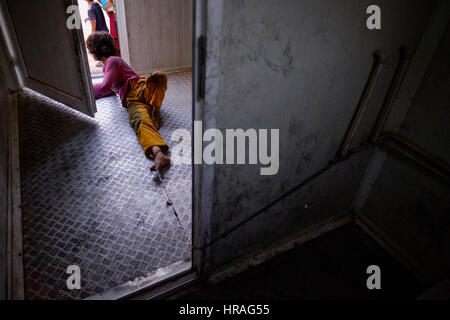

Learn more about communication challenges. Games that use visual storytelling, social modeling, and language patterns can help kids with speaking, listening, and communicating. Try these games to help kids with disabilities in these five areas: Communication Mainstream games can boost a sense of independence and confidence in kids with disabilities, provide the ability to ask for help, and let them challenge themselves. While games designed specifically for kids with disabilities can address certain issues, many mainstream titles can support your kid's learning. For kids with disabilities, video games can offer opportunities to practice everything from communication skills to organization - even social interaction - in a comfortable environment where players set the pace. Cognition, 13, 103–128.Strengthening skills through play is a proven strategy to help kids learn. Beliefs about beliefs: representation and the constraining function of wrong beliefs in young children's understanding of deception. Autistic children's talk about psychological states: deficits in the early acquisition of a theory of mind. Paper presented at the Biennial meeting of the Society for Research in Child Development, Kansas City, MO. An analysis of discourse ability and internal stale lexicons in a longitudinal study of autistic children. Journal of Child Psychology and Psychiatry, 33, 591–605. Deception and sabotage in autistic, retarded and normal children.

Exploration of the autistic child's theory of mind: knowledge, belief, and communication. Journal of Child Psychology and Psychiatry, 32, 1107–1122. Asperger's syndrome: Evidence of an empirical distinction from high-functioning autism. British Journal of Developmental Psychology, 6, 315–324. Autistic children's understanding of seeing, knowing, and believing. Olson (Eds.), Developing Theories of Mind.

Some implications of pretence for mechanisms underlying the child's theory of mind. Pretence and representation: The origins of “Theory of Mind.” Psychological Review, 94, 412–426. The effects of right hemisphere damage on the pragmatic interpretation of conversational remarks. On acquiring knowledge about people, and the capacity to pretend: A response to Leslie. Dawson (Ed.), Autism: Nature, diagnosis and treatment. The homograph task: A test of weak central coherence in autism. Does the autistic child ever have a theory of mind? Explaining the success of the “talented minority.”

Communication and theory of mind in autism: A test of relevance theory. Frith (Ed.), Autism and Asperger syndrome. The autobiographical writings of three Asperger Syndrome adults: Problems of interpretation and implications for theory. The cognitive basis of a biological disorder: Autism. Oxford: Blackwell.įrith, U., Morton, J., & Leslie, A. British Journal of Disorders of Communication, 23, 111–125.įrith, U. Assessment of language disorders after right hemisphere damage. Surprise but not coherence sensitivity to verbal humour in right hemisphere patients. H., Michel, D., Powelson, J., & Gardner, H. Journal of Child Psychology and Psychiatry, 33, 877–893.īrownell, H. Does the autistic child have a ‘theory of mind’? Cognition, 21, 37–46.īowler, D. Journal of Child Psychology and Psychiatry, 30, 285–297.īaron-Cohen, S., Leslie, A. The autistic child's theory of mind: A case of specific developmental delay.


 0 kommentar(er)
0 kommentar(er)
